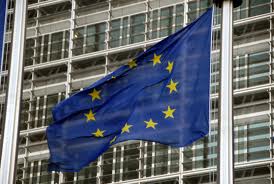 9 May is Europe Day, celebrating the Schuman Declaration of 9 May 1950 and ‘the first concrete foundation of a European federation’. Whilst some in the UK regard the creation of a European federation with horror, it cannot be denied that our involvement in Europe is important politically, economically and culturally.
9 May is Europe Day, celebrating the Schuman Declaration of 9 May 1950 and ‘the first concrete foundation of a European federation’. Whilst some in the UK regard the creation of a European federation with horror, it cannot be denied that our involvement in Europe is important politically, economically and culturally.
The BBC reported today that the British are under-represented among employees of European Union institutions. British workers fill 5% of positions in the Parliament and the Commission, although the UK comprises 12% of the EU population. It will come as no surprise that the main reason for this disparity is the poor foreign language skills of the UK population. It is true, many Europeans speak English as a second language and a great deal of EU work is conducted in English, particularly since the accession of Central and Eastern European countries caused a decline in the use of French at the institutions. However, knowledge of either French or German in addition to English is necessary to work for the EU.
The situation is worsening, since languages are no longer compulsory up to the age of 16. On a positive note, the proposed English Baccalaureate would be awarded to those pupils in England who study a foreign (or ancient!) language as well as science and mathematics. Here in Wales, the fact that foreign languages are not compulsory at GCSE fails to capitalise on the fact that, through learning Welsh, Welsh children have an advantage when it comes to adding another language. As we know, the more languages you learn, the easier it becomes to learn others, when given the opportunity.
Unfortunately, negative attitudes to European integration and a failure to give importance to language learning means young people are missing out on the chance for great careers, not only with EU institutions but in many other fields where foreign languages are necessary in Europe and world-wide.
If you missed out on (or slept through) language lessons at school, Business Language Services Ltd. can help you with bespoke courses to suit your particular needs and schedule. Maybe this time next year, you’ll be able to wish your friends a happy Journée de l’Europe, Europatag or Dzień Europy.

